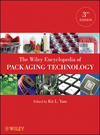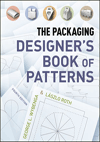Addressing the Challenges of Using Sustainable Films on Pouching Equipment

(Courtesy of R.A Jones)
Sustainability is the key. In fact, as plastic packaging waste regulations ramp up in Europe, parallel trends indicate that environmentally friendly purchasing habits are becoming more popular among younger generations. Combined, these two components underscore the necessity for consumer brands to adopt sustainable packaging materials.
The new EU-wide rules on plastic packaging look to reduce unnecessary plastic waste, and instead encourage the use of fully recyclable materials by 2030. With that said, any company that looks to cater toward the European market will need to comply with these upcoming regulations within the next few years.
Complementing these contemporary European packaging rules, personal consumer preference is becoming more prevalent in purchasing decisions. According to a recent Trivium Packaging study, 82 percent of respondents would be willing to pay more for sustainable packaging, demonstrating a 4-point increase from 2022, and an 8-point jump from 2021. Further, 90 percent of younger consumers between the ages of 18-24 were even more willing to reach for eco-friendlier packaging.
Flipping the data, Trivium actually found that 63 percent of consumers are now less likely to buy products with packaging that is harmful to the environment. This growing demand for sustainable packaging highlights the importance for consumer-packaged goods (CGPs) companies to integrate innovative equipment solutions within their packaging lines so as to adhere to governing standards and growing consumer preferences.
Where to Improve?
One method for companies to offer sustainable packaging options is through the use of flexible films on high-speed form/fill/seal pouching systems.
Traditional packaging film structures typically comprise numerous layers and dissimilar materials, designed to offer strong barrier qualities. However, due to the multiple layers and combination of materials, the flexible films are usually non-recyclable, causing the packaging to usually end up in the landfill.
To help achieve 100 percent recyclability, new mono-material film structures are being developed to ensure these green solutions can fulfill the same necessary requirements as the legacy packaging materials.
Unfortunately, these new, single layer, flexible packaging films are not always easy to run on form/fill/seal systems as the biggest challenges with the new materials are a smaller heat tolerance range and greater elasticity. Applied heat and pressure to the film is required to create the packaged seal, but this intensity can prompt the sustainable films to stretch, shrink or distort, leading to excessive material waste and pricey equipment downtime. Without newer and more sophisticated technologies to control and monitor the heat and web tension, the sustainable webs can become easily unusable.
How CPGs can Stay Ahead
The first steps CPG companies can take to transition to environmentally friendly packaging is to identify an OEM that offers equipment to handle these delicate, sustainable materials with precision without compromising on speed and production performance. OEMs must be able to match production demand while guaranteeing equipment capabilities – R.A Jones has invested substantially in developing new heat-sealing technology, which manages the sealing process to avoid damaging the sustainable packaging films.
R.A Jones began trialing sustainable films on its high-speed form/fill/seal pouching equipment to ensure customers would be able to run sustainable flexible materials on its pouching machinery while still meeting their output goals.
Now that the new material handling technology is available on the Pouch King equipment, R.A Jones launched a new service for material suppliers to test their sustainable films at the 2023 Global Pouch Forum. The materials selected can be used to package a variety of products ranging from soup bases, spices, instant breakfast foods to drink mixes, nutraceuticals, and snacks.
In anticipation of the 2030 EU-regulations, suppliers are eager to get their sustainable packaging materials tested and verify that their webs can run on high-speed, pouching equipment. With the assistance of R.A Jones, customers will be able to trial their mono-material film structures and receive a detailed scientific report highlighting the film’s capabilities, including its seal bar temperature, pressure roller force, distortion temperature and time, and more.
By verifying how these new eco-friendly films operate with advanced heat-sealing and tension control technologies, material suppliers can identify the proper temperature and tension to run their web on high-speed pouching equipment before selling it to CPG companies.
Aside from aligning with approaching global governing regulations, growing consumer preferences demonstrate a rising interest in sustainable materials and environmentally friendly packaging. As the younger generations’ purchasing power becomes a dominating force, consumer brands must be ready to adapt to these changing demands and meet these green initiatives head on.
For more information about R.A Jones’ new flexible film trial offering for material supplier on its Pouch King machinery, or to learn more about its high-speed pouching equipment, please visit rajones.com.
Looking for a reprint of this article?
From high-res PDFs to custom plaques, order your copy today!









